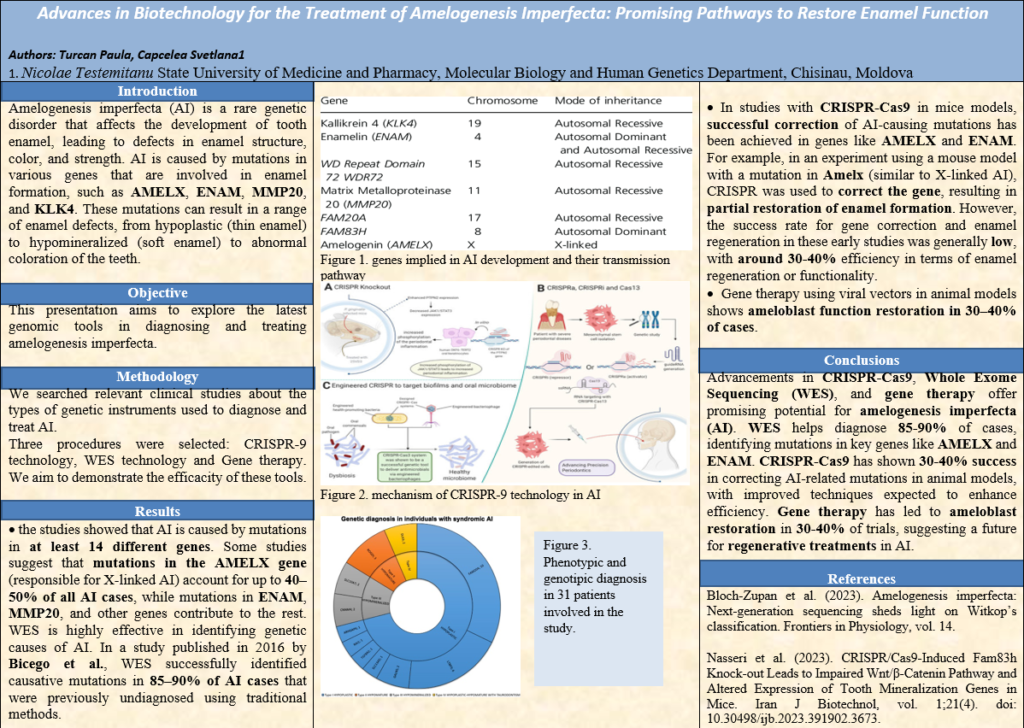Paula Turcan
Moldova
Advances in Biotechnology for the Treatment of Amelogenesis Imperfecta: Promising Pathways to Restore Enamel Function
Turcan Paula, Capcelea Svetlana1, Cemortan Igor1
1. Department of Molecular Biology and Human Genetics, Nicolae Testemi?anu State University of Medicine and Pharmacy, Chisinau, Moldova
Abstract
Background
Amelogenesis Imperfecta (AI) is a rare genetic disorder that affects the formation of tooth enamel, leading to defects in enamel structure and function, and resulting in various degrees of dental malocclusion, sensitivity, and increased risk of cavities. AI presents a significant challenge in both diagnosis and treatment, given its complex genetic origins and phenotypic variability. Recent advances in biotechnology are shedding light on the molecular mechanisms underlying AI, offering new insights into both its pathogenesis and potential therapeutic strategies.
Methods
We searched relevant clinical studies on genetic instruments used to diagnose and treat amelogenesis imperfecta (AI). Three procedures were selected: CRISPR-Cas9 technology, whole-exome sequencing (WES), and gene therapy. Additionally, we analyzed statistical data from studies to identify mutations and RNA-based therapies for enamel regeneration. We aim to evaluate the efficacy of these tools by comparing treatment outcomes, success rates, and patient responses, providing insights into their clinical effectiveness.
Results
The study by Hart et al. (2020) concluded that whole-exome sequencing (WES) successfully identified novel mutations in FAM20A and C4orf26, alongside known mutations in AMELX and KLK4, which are linked to various phenotypes of amelogenesis imperfecta (AI). CRISPR-Cas9 gene editing validated the role of FAM20A mutations in enamel hypoplasia, and transcriptomics revealed disruptions in Wnt and BMP signaling pathways, providing mechanistic insights into AI. The findings improved genetic diagnosis for 87% of families, highlighting the potential for personalized care and genetic counseling. The study underscores the importance of integrating genomic technologies to better understand AI and develop targeted treatments.
Conclusions
Biotechnology plays a crucial role in advancing our understanding of amelogenesis imperfecta (AI) by enabling precise genetic analysis, functional validation, and the identification of novel mutations. Techniques like CRISPR-Cas9, whole-exome sequencing (WES), and transcriptomics have significantly enhanced diagnostic accuracy, revealed underlying molecular mechanisms, and identified potential therapeutic targets. These innovations pave the way for personalized treatments, improved genetic counseling, and a deeper understanding of enamel development, ultimately offering hope for more effective interventions in AI management.


Leave A Comment